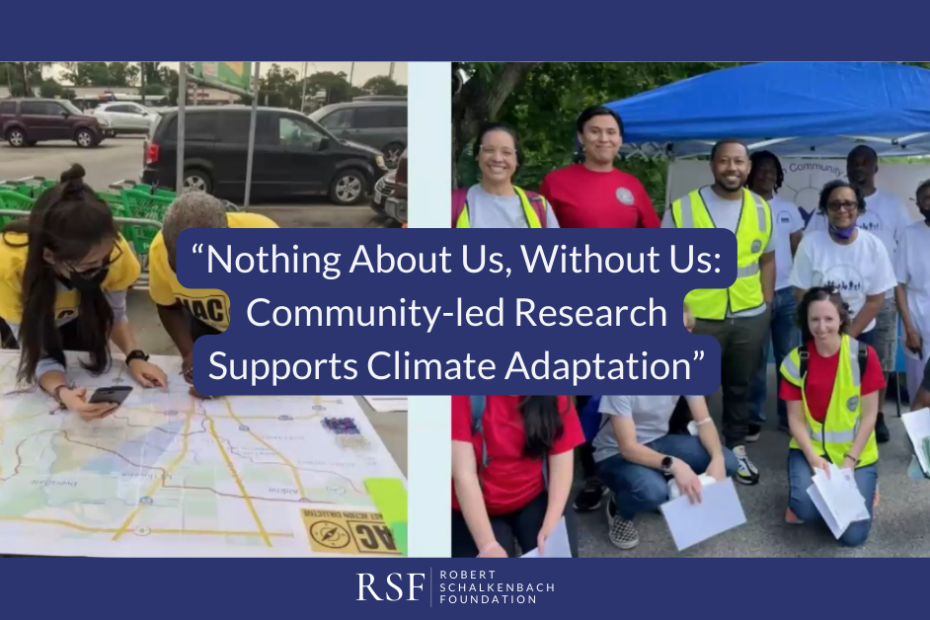As President Biden’s Justice40 Initiative celebrates its third anniversary, historically underserved communities around the country continue to draw inspiration from the unprecedented commitment to environmental justice. The 40 in the title stands for the goal of channeling 40% of the federal investment benefits into neighborhoods marginalized and overburdened by pollution.
The administration claims that Justice40 was born from direct input from communities that experienced decades of underinvestment and are now seeking environmental justice. Perhaps more importantly, Justice40 aims to bring in more of their input into the process. As noted by the White House, “Formal Administration guidance directed Justice40-covered programs to conduct meaningful engagement with stakeholders to ensure community members have an opportunity to provide input on program decisions, including in the identification of the benefits of Justice40 covered programs.”
But what is “meaningful engagement?” In a community-led approach, it means incorporating input from the inside-out, rather than just the outside-in. In other words, communities participate in the research design and execution, rather than being mere passive research subjects.
Justice40 marks a step in this direction and also points to the growing trend of “community-led” research that recenters power on communities to define local challenges and the appropriate ways to overcoming them. It also recognizes the particular importance of this approach in addressing climate change and developing long-term resilience.
What is community-led research?
Historically, researchers parachute into communities, decide what is important to investigate, then extract the data from local residents and their neighborhood organizations, claiming ownership over what they learn. Frequently, communities never hear the researchers’ findings. In contrast, community-led research trains community members to become co-researchers who identify local priorities, co-develop surveys, and then carry out the research, interpret the data and feedback, and use the output to co-design solutions with experts.
Community-led research, on the other hand, offers far more benefits. Not only does it provide a deeper understanding of the reality on the ground — as research participants may be more likely to share their authentic thoughts and perspectives with people they know in the community, rather than outsiders — it also is more representative because externally led research has long ignored, under-included, undervalued, and even exploited communities of color. Lastly, community-led research provides locals the skills to perform future research projects, thereby generating agency and rewards beyond the lifespan of any specific project.
Community-led research addressing climate change
Few areas can benefit more from a community-led approach to research as the fight against climate change and adaptation to it. As Groundwork USA’s senior manager of environmental justice programs, Jalisa Gilmore noted in a November 2023 presentation hosted by River Network, “Community-led research is a powerful tool and approach to gather and apply community-generated data to really inform climate resilience plans and decisions — so in the hands of community members who are greatest risk from a changing climate.”
Examples of this abound, as in projects in Barrio Playa in the southern coastal Municipality of Ponce, Puerto Rico, led by Robert Schalkenbach senior research associate, David Southgate, an embedded researcher, activist, and board member of the community-based organization Un Nuevo Amanecer (UNA). Southgate’s neighbors have long struggled with flooding, which has only increased with infrastructure disinvestment and climate change.
“We asked people about their experiences with flooding to make a contrast with the information we had from FEMA flood maps, which many of us understand do not reflect lived experiences.” Unfortunately, he points out, “The local and territorial government is basing its risk analysis for investment of federal recovery funds from the 2017 Hurricane Maria on outdated FEMA flood maps. This translates to denial of funds that might otherwise help some of our neighbors rebuild – forcing them to ‘voluntarily’ relocate from the barrio.”
Various entities funded UNA’s community-led research, allowing the organization to train and compensate a dozen community field researchers, as well as technical assistance. They mapped lived experiences with flooding that contrasted with FEMA’s flood maps, documented areas of neighborhood abandonment, and produced knowledge about household-level experiences with flooding and their preferred response – to adapt in place or move to higher ground.
The success of these community-led efforts comes from resident participation in co-designing a survey, “so that the questions and phraseology aligned with the cultural experiences and language of Puerto Rico,” Southgate noted. The community data is then applied and incorporated into discussions feasible climate adaptation responses, communication, advocacy, and public policy analysis — especially government actions that increase climate vulnerability at the neighborhood level.
Another community-led research project in Port Arthur, Texas also investigated flood impacts. Working with the Port Arthur’s Public Works, the Port Arthur Community Action Network provided air monitors to local residents. The monitors measured how mold and other air toxins worsened with flooding, providing neighbors with data to drive potential investments in new stormwater and flood infrastructure. It also helped them receive additional support from the Biden administration — $407,600 to set air monitoring baselines in the greater Port Arthur and Lake Charles areas.
Nothing about us, without us
“Community-led research really is born out of this understanding that…the way we’re investing in climate solutions, disaster preparedness, and disaster relief is oftentimes replicating the same inequitable systems that we’re working within,” notes Diana Toledo, senior director of river programs at River Network. Community-led research, she contends, offers a way to break the cycle and find community-responsive ways to build resilience in the face of climate change. The more communities can define their challenges and generate ideas to solve them, the more they can identify and implement the solutions that serve them for the long-term.

